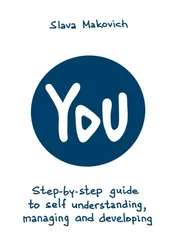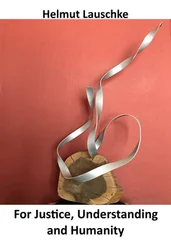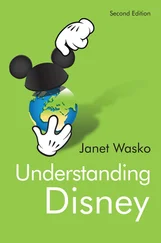Secondly, my personal interests do not coincide closely with those of most young people who will read this book. I have included new chapters on Sport and on 'Alcohol, Nicotine and other Drugs' (which, in terms of the issues it raises, interests me very much). But here you will find nothing about popular music, very little about television and very little about youth culture. Fortunately the internet has made these gaps in my account insignificant: readers who want to know about these matters will be familiar with all the best websites.
Thirdly, I know from experience that some readers will resent my observations on Russia and Russians. (The criticisms sent to me by readers of Understanding Britain almost always referred to the tiny sections of the book in which I discussed Russian attitudes, and almost never to my detailed accounts of Britain.) Of course readers are entitled to criticise whatever annoys them or where they detect error - and we all know that foreigners misunderstand us, even when they are our close friends. But while I look forward to queries and criticism of this book, I hope they will be focused on Britain rather than Russia.
What about the sources and material for Understanding Britain Today? I am not a professional sociologist but a teacher of literature. My qualifications for trying to explain Britain to you are chiefly that I was born and brought up here, that I married and brought up children here, that I have spent many years teaching adults who have their own views of Britain, and that I have been actively involved in various social, cultural and political activities since my adolescence. In addition, because I am nearly twenty years older than I was when I wrote Understanding Britain, I have had the chance to look back over many decades of evolving change in Britain and to reflect on the different circumstances in which my grandchildren are growing up. The years of conversations with my husband, Douglas, before he died, helped then and now to give me a context for these chapters. Life - whether personal, social or public - does not stand still, and perhaps being older makes me more aware of this truth than those younger people who are eagerly living in the present of their own generation.
For figures and data I have relied heavily on the statistics supplied by the independent Office of National Statistics, particularly in their annual volumes entitled Social Trends. I have also consulted the British Social Attitudes survey, published annually by the National Centre for Social Research. Both publications provide information in their own fields which is as accurate and independent as scholarly research can make it. As far as possible, the data is the latest available in mid-2009. Much of the other background information comes from a lifetime of reading both fact and fiction, and from reports and analyses in assorted provocative journals. I am also intensely grateful to BBC Radio 4 for the excellent education it has given me over some forty years.
I needed other voices. My work at Oxford University Department for Continuing Education enables me to talk to many adults from different backgrounds in and around the southern Midland counties; I must have absorbed and drawn on the views of hundreds of them. I listen to the voices of my large and argumentative family whose homes range from Brighton on the south coast of England to Kirkwall in the Orkney Islands north of Scotland. I have sent out letters and questions to younger people and consulted some of their websites. I am grateful to all of them, known and unknown, but in particular I would like to thank the following people who have answered specific questions, corrected me on details or commented on drafts of chapters: Derrick Bennett, Olly Benson, Beryl Braithwaite, Sandie Byrne, Kate Carpenter, Grace Connaughton, Vicky Connaughton, Peter Copley, David Grylls, John Harwood, Jim Herrick, Adrian Hewitt, Alex Hewitt, Alison Hewitt, Conrad Hewitt, Lucy Hewitt, Mark Hewitt, Rory Hewitt, Dorothy Kavanagh, Mansur Lalljee, Colin Low, Ann Marsh, Sue Matthew, Fiona McLeod, Roderick McLeod, Paulette Noble, Linda Noel, Peter Preston, Mari Prichard, Sophie Sheehan, Irene Snook, Theresa Strickland, Julian Wiffen.
I first travelled to the Soviet Union in 1984 before perestroika had been heard of; during the years when Gorbachev was in power I visited your country nine or ten times; since the fall of the Soviet Union I have been to Russia around fifty times. I have been able to speak to people in cities, towns and villages from Smolensk to Vladivostok, from Arkhangelsk to Piatigorsk, and on many train journeys across tracts of your vast country. Wherever I have been I have asked questions and have been fascinated by the candid, voluble and contradictory answers which I have received.
I would like to thank especially my colleagues at Perm State University where I am proud to be an Honorary Professor. Although I have now been to dozens of places in Russia, Perm is and will remain my second home. Many of my visits were self-financed, but I am particularly grateful to Anthony Smith and the Oxford Russia Fund for enabling me to travel even further across your country and for giving me the opportunity to organise seminars and meetings in Perm and elsewhere.
I have two special debts: Vladimir Ganin, the other director of Perspective Publications, has been unwearied in correcting me whenever I have been too naive or complacent in my opinions of Russia and Russians; and my daughter-in-law, Kseniya Hewitt, has provided enlightening and provocative observations during the months of re-writing this book.
Understanding Britain was dedicated to my closest Russian friends and to my children. I would like to dedicate Understanding Britain Today once again to Boris and Lyuba Proskurnin whose hospitality, conversations and honest answers to probing questions over twenty years have never failed me. As for those on this side of Europe, I am grateful to my children for all their help, but would like to dedicate the book to my twelve young grandchildren, and especially to two of them -Masha and Kirill Hewitt - in the hope that by the time they want to read it, understanding between our two countries will be closer and brighter and beneficial for all of us. To Russians and English with love.
Part One: The People of Britain
Chapter 1. Who We Are and Where We Came From
Defining Ourselves
In 2001 the British people took part in a census. A census has been held every ten years since 1801. Some of the questions on the census form have remained the same for two hundred years because the information gathered from the answers is always necessary. Governments need to know how many people live in this country, and in what parts of the country they live in order to plan their policies properly. At each census a few new questions are asked (and some old ones dropped) because society is never static. In 1991 people were asked for the first time to describe themselves in terms of their 'ethnic origin'. This was a new question about 'identity'. In the 2001 Census this exploration of 'identity' was developed through further questions. For the first time, people were being asked what they thought it meant to be British.
In this chapter I look at the debates about who we are, and what unites us as a people. Forty years ago such questions were almost ignored, since the answers seemed so obvious, but now the situation is more complicated. First, however, here are a few facts to explain the background to the debates.
The country in which I and sixty one million other people live is officially called 'The United Kingdom of Great Britain and Northern Ireland'. 'Great Britain' is the larger of the two big islands off the north-west coast of Europe, a long straggling triangle about 1200 kilometres in length. 'Ireland' is the smaller, more-or-less rectangular island to the west of Great Britain. The territory of Great Britain is divided into three countries: England, Scotland and Wales. The territory of Ireland is divided into the Irish Republic (an independent and separate country) and the 'Province of Northern Ireland'. England, Scotland, Wales and the province of Northern Ireland are a 'United Kingdom' and their Head of State is the British monarch - as I write she is Queen Elizabeth II who has reigned since 1952.
Читать дальше












